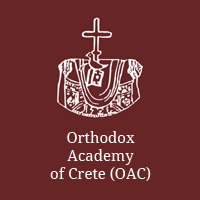ONLINE CONFERENCE- Sacred Days in Early and Medieval Christianity: The Case of Easter
Monday, January 29, 2024
The Orthodox Academy of Crete, Medievalists.net, and After Constantine Journal are planning an online video conference entitled Sacred Days in Early and Medieval Christianity on April 20, 2024, at 17:00 (Athens, Greece, time).
The Orthodox Academy of Crete, Medievalists.net, and After Constantine Journal are planning an online video conference entitled Sacred Days in Early and Medieval Christianity on April 20, 2024, at 17:00 (Athens, Greece, time).
The concept of a day or days ennobled as “holy” or “sacred” has been central to the performance of ritual practices throughout history. Holy days provided a crucial means of bonding around a central theme at a designated location. Timing and spacing combined to vaunt individual and collective piety through vocal and visual manifestations of their credo. Religious feasts and festivals were often shaped by cultural concerns and served to consolidate a particular religious group’s identity, social cohesion, and spirituality. The processes by which a day became holy were complex and differed substantially across religions, cultural environments, geographical areas, and historical periods. Christianity inherited its notion of Jewish and Graeco-Roman calendars and holy days to develop its tradition of religious feasts and seasons.
As the Christian year took shape, Easter became its central feast, commemorating the foundations of the faith itself. Yet, the absence of uniformity of Easter celebrations across the landscapes of Christianity is striking. This conference will focus on the varieties of Easter, including Lent, Passiontide, and Holy Week, as well as other days and periods throughout the Christian calendar. We plan to investigate how holy days, liturgical feasts and seasons, and days of religious significance developed in Early, Late Antique, and Medieval Christianity.
There will be a parallel Greek translation during the Event (Θα υπάρχει παράλληλη ελληνική διερμηνεία κατά τη διάρκεια του συνεδρίου).
We invite proposals for 20-minute papers in English on Easter from all angles and disciplines or any other aspect of holy days in pre-modern Christianity.
Suggested topics include:
Sacred days in Christianity and their origins
The terminology of the sacred
The development of the liturgy in tandem with holy days
Conceptions of Sacred Time
Easter computus
Palm Sunday and its traditions around the world
Theological and historical aspects of Good Friday
The history, theology, and geographical traditions of Holy Week
Holy Saturday in Eastern and Western Christianity
Lazarus Saturday: History, theology, and meaning
The archaeology and art history of Holy Week
Historical Easter customs
Lenten practices in historical Christianity
Non-Christian/ other influences on the development of holy days in Christianity
Relationships to Judaism/ Graeco-Roman practices
The development of the liturgical calendar
Debates about the fixing of holy days on particular dates/ at particular times
Abstracts of around 300 words and a brief CV must be submitted to [email protected] by February 29, 2024.
Organizing committee of the conference
Zoe Tsiami (University of Thessaly)
Hagith Sivan (The University of Kansas)
Konstantinos Zorbas (General Director, Orthodox Academy of Crete)
Peter Konieczny (Medievalists.net)
John J. Gallagher (University of St Andrews)
Visit the conference’s website here.

